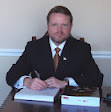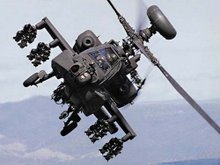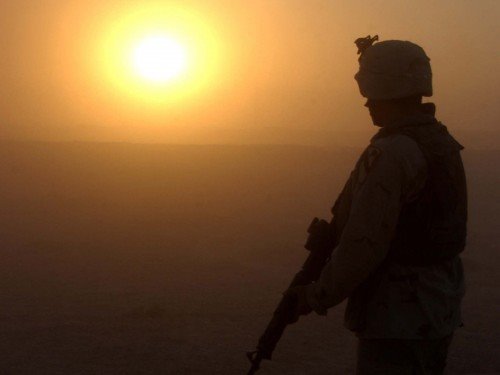Military Defense Lawyer (Former JAG Attorney) News:
As they have from the program’s inception, the Air Force continues to “pat itself on the back” regarding the creation of the Special Victims’ Counsel (SVC) program. SVCs appear on behalf of qualified alleged victims in military rape and sexual assault court-martial cases (UCMJ Article 120). The latest articles from Stars and Stripes and Military.com appear here:
http://www.stripes.com/news/air-force-program-a-rare-bright-spot-in-military-s-sex-assault-fight-1.269628
http://www.military.com/daily-news/2014/02/27/air-force-program-rare-bright-spot-in-sex-assault-fight.html
What the reporter, and the article,
fail to do is to seek the other side of the story. Not a surprise. Are there still problems with regard to these
government appointed SVC attorneys interfering with legally recognized
discovery and evidentiary rights, rules, and law? The answer is “yes”; there are still these
problems – which directly impact the fairness of the military justice system
and the rights of a military member accused of rape or sexual assault and
facing the anxiety, fear, and uncertainty of a court-martial trial.
The comment I posted in response to
the article was:
“With all due respect, this is a very
one-sided article (more of a promotional article than a balanced account) that
doesn't seek to discover the continuing problems caused by SVCs for the
fairness of this criminal justice system - some of which were detailed, with
specificity, in the USAF Trial Defense Division's appellate brief in the LRM
case. The SVC program makes Air Force lawyers, in many instances, still act
like non-lawyers. In other words, when discovery and evidentiary rules and case
law are clear, we are still seeing SVCs cast that aside to advocate for the
alleged victim's nonlegal objection, regardless of what the law says. While
that might be appreciated by alleged victims, how are nonlegal arguments
contrary to the law really considered to be "success?" It is also
important to understand that all the LRM decision stood for was the narrow proposition
that SVCs could speak to the court in a limited capacity on behalf of alleged
victims. It did not rule on the substance of SVC actions/representation - such
as being obstructionist with regard to witness interviews, discovery, etc.
While I won't paint every SVC with a broad brush, because I have seen
improvement and have dealt with SVCs who still understand the requirements of
the law, there have been plenty of problems, that continue to this day, with
regard to SVCs forgetting that they are still lawyers and, as lawyers, the
procedural rules and law applies to them as well.”
What we see with this “rah rah” Air Force
article is representative of the basic problem with the Air Force and military’s
reaction to this issue of alleged rape and sexual assault in the military –
they care more about scoring points in public perception (in the press, with
Congress, etc.) than they do about Constitutional rights, fairness of the
criminal justice system, the presumption of innocence, and due process.
I wonder how the politicians, government
officials and military officials who are so proud of the changes to the
military justice system, and so vocal on this issue, would feel if a child of theirs was facing an
allegation of rape or sexual assault in the military? Would they still be beating the drum that?:
- The accuser must be telling the truth. No one lies about these allegations or
misperceives events.
- The accused (my child) must be guilty.
- The accused (my child) doesn’t deserve a
fair court-martial.
- The accused (my child) shouldn’t question
the credibility, motives, or perception of the accuser.
- The accused (my child) shouldn’t “re-victimize”
the accuser by asking for discovery and admission of contrary evidence.
- If the accused (my child) is not
prosecuted, the military justice system has failed.
- If the accused (my child) is not convicted,
the military justice system has failed.
- If the accused (my child) doesn’t receive a
harsh sentence, the military justice system has failed.
- If the accused (my child) is granted
clemency, the military justice system has failed.
And, lest we forgot, the accused is a member
of the United States military. Who swore
to protect and uphold the Constitution through service and sacrifice, which
could include taking life or losing his/her own life. Shouldn’t they be entitled to the rights and
protections of the Constitution they are willing to kill or die for? Shouldn’t they be entitled to a fair military
justice system?
As I have said before regarding this
issue: It is a very sad
chapter in the history of the military justice system.
For more information about the military
justice system, particularly cases alleging rape and/or sexual assault in
violation of UCMJ Article 120, type “rape” or “sexual assault” into the search
bar above the blog posts and go to:
http://militaryadvocate.com/military-offenses/rape-sexual-assault-sodomy/
We offer free consultations for a military case you may be involved in. Just call us.
Thank
you.
By:
Attorney Richard V. Stevens
Civilian criminal defense lawyer and military defense lawyer
Military Defense Law Offices of Richard V. Stevens, P.C.
http://www.militaryadvocate.com
Civilian criminal defense lawyer and military defense lawyer
Military Defense Law Offices of Richard V. Stevens, P.C.
http://www.militaryadvocate.com

























No comments:
Post a Comment